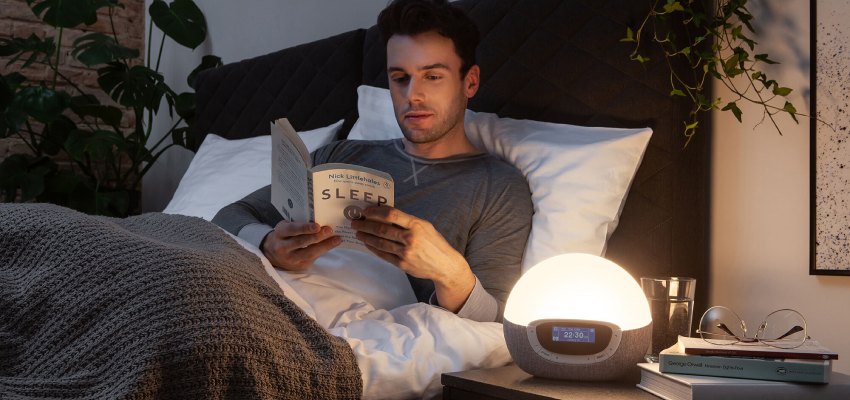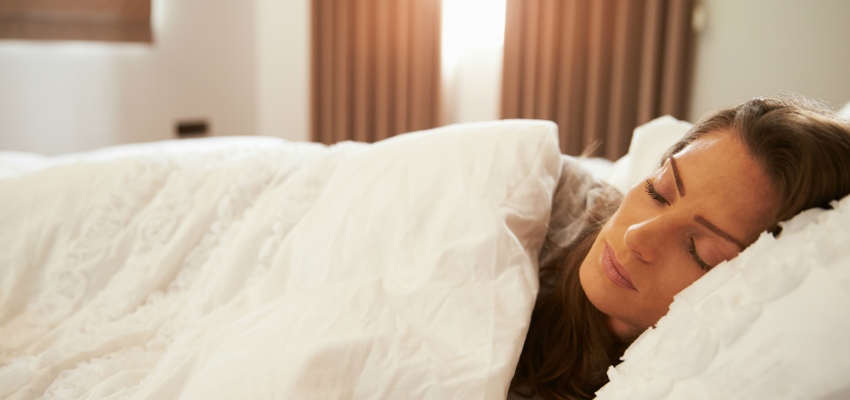Getting sound sleep is beneficial to the general well-being of the individual as it enhances melt. Nonetheless, due to the demands of contemporary society, people find it difficult to get adequate sleep.
Thankfully, consuming some natural products can be implemented to enhance the quality of sleep and avoid the discussed nuisances. This blog will look into techniques on how to have a natural better sleep at night without the use of sleeping pills or supplements.
Thus, it is very important to be able to get a sound sleep during the night. However, as requirements of modern society increase, many people deny themselves proper rest. Fortunately, there is a large number of natural things that can be incorporated when narrowing down the quality of sleep. Below are various natural methods one can attempt to use in order to encourage better sleep at night.
Create a Sleep-Inducing Environment
The quality of your sleep largely depends on your bedroom. The following are some tips to help improve your sleeping area and make it easier for you to fall asleep: Below are various ways that you can improve your sleeping environment and make falling asleep easier:

- Keep It Cool: A person should try to sleep when the temperature is in the moderate range, i.e., between 60° and 67°F (15–19°C). Create a cold atmosphere in your bedroom so that the body can cool off enough to allow you to sleep.
- Reduce Noise: Unless you fancy wearing ear plugs or any of those well-liked white noise machines that muffle noises that could distract your slumber.
Scrupulously develop the habit of washing the body before going to sleep
Establishing a good sleeping pattern involves laying down a sleep schedule through adherence to a proper sleep timing that will be adopted by the body’s natural clock.
- Limit Naps: It is, therefore, advisable that daytime napping should embrace a particular period or part of a day instead of being taken while awake during the day because they affect night sleep. In the case that one does require a nap then it should be for not more than half an hour and mostly not during this time that is in the evening.
- Avoid Heavy Meals Before Bed: Consuming large or fatty foods just before going to sleep d or within a few hours of sleeping can cause discomfort and indigestion.
Incorporate Relaxation Techniques
Stress and anxiety were only among the hurdles that a man is able to come across in a day that makes him have sleepless nights. Including the use of relaxation strategies into yourself this is extremely important when preparing for sleep.

- Practice Mindfulness and Meditation: Of these methods, you will see that they are helpful in lowering stress and anxiety, preparing you for bed.
- Deep Breathing Exercises: Deep and slow breaths should also help to stimulate the parasympathetic nervous system which will have a calming effect.
Get Regular Exercise
This play can also make one be in a position to go to sleep easily and even have sound sleep in the night. However, what I have found to be Truthful is that; the timing of the workouts matters.
- Exercise Early: It is recommended, any rigorous activity should be done at least three hours to bedtime. Exercise raises adrenaline in the body and if done nearer the bed time could hinder one from getting to sleep.
- Opt for Gentle Movements in the Evening: Some of the exercises like yoga or stretching could be very healthy for you and they do not make your body high as most other exercises will.
Manage Exposure to Light
Regularity of the light during the day and darkness at night is effective in establishing a good sleep-wake cycle.

- Get Plenty of Daylight: Go out in the sun during the day so that they get to interact with natural light. This is because it helps in regulating one’s circadian rhythm.
- Limit Screen Time Before Bed: This kind of light is produced by screens of your phone, tablet, computer, and TV and interferes with synthesis of melatonin in your body. It is useful to attempt to switch off electronic devices at least an hour prior to the intended period of sleep.
Use Natural Sleep Aids
There are some natural products that are often used to ensure that improved sleep is achieved.
- Melatonin Supplements: Melatonin is a hormone that brings the body into sync with its sleep cycle. As a supplement, it helps to stabilize the sleep-wake rhythm in a mild and temporary way, especially for practices such as jet lag or shift work.
- Herbal Teas: Chamomile, valerian root, and lavender teas have anxiolytic properties that’d facilitate your ability to go to sleep.
Practice Good Sleep Hygiene
Sleep hygiene therefore refers to the creation of behavioral practices that are friendly to sleep and can be adopted in the fight against sleep interruption.

- Develop a Bedtime Routine: Go for other activities that are less stimulating before sleeping or retiring to bed like reading or taking a warm bath.
- Limit Alcohol and Screen Time: Alcohol as a sedative can interfere with the sleep-wake cycle while bright screens can suppress the production of melatonin. The last two should be avoided near that time.
- Reserve Your Bed for Sleep: It is highly advisable not to engage in other activities other than sleeping and making love in bed. This assists in building a mental connection between your bed and sleep, hence helping to get you sleepy.
Address Sleep Disorders
If you have attempted behavior changing methods and you still find it hard to sleep, then you may well have a sleep disorder.
- Consult a Professional: Other conditions that relate to sleep include insomnia, sleep apnea and restless leg syndrome and there should be a consultation of a doctor. Do not self-diagnose your sleep disorder; consult a healthcare provider before doing anything.
- Cognitive Behavioral Therapy (CBT): CBT for insomnia is a kind of treatment the aims at helping one transpose unconstructive thoughts and behaviors that affect their sleeping pattern.
Conclusion
Natural ways of enhancing sleep entails certain changes in the person’s behaviors and surroundings. In addition, there are many habits to follow that can help improve the quality of sleep and suggest that there are many facets to consider to have proper sleep:
Increased comfort during sleep, correct daily circadian rhythms, balanced nutrition, stress relief, physical activity, control the exposure to light at night, natural remedies for sleep, general hygiene of sleep, and treatment of sleep disorders.
Of course it is very important to remember that it is all in the repetition and that even the slightest of changes can yield major alterations in a period of time. Sweet dreams!